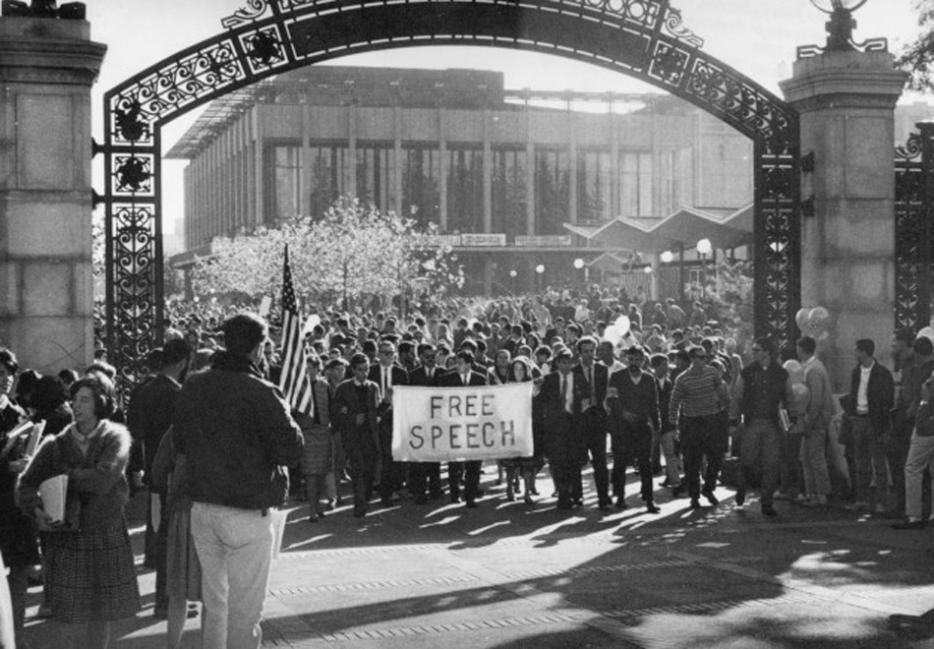After the recent Isla Vista shootings, Facebook initially refused to take down the page “Elliot Rodger is an American Hero” created in the killer’s honour. Users who reported the page got this message: “Reports like yours are an important part of making Facebook a safe and welcoming environment. We reviewed the page you reported for containing graphic violence and found it doesn’t violate our Community Standards.”
Facebook’s community standards page states that “The conversation that happens on Facebook—and the opinions expressed here—mirror the diversity of the people using Facebook.” It tells you that while you are free to report pages that upset you, their administrators may not share your opinions. You may think mass murder is wrong, and you should feel free to report pages celebrating it, but you know how it is—it takes every colour to make a rainbow. Luckily, you always have the option of choosing to see no evil. “[I]t's possible that something could be disagreeable or disturbing to you without meeting the criteria for being removed or blocked. For this reason, we also offer personal controls over what you see, such as the ability to hide or quietly cut ties with people, Pages, or applications that offend you.”
In other words, if you don’t like it, just ignore it. Other people’s right to free speech is more important than your desire not to be offended. It’s the flipside of the argument you see in the “inspirational quote” circulated on social media from the site Livelifehappy.com: “Don’t like gay marriages? Don’t get one. Don’t like abortions? Don’t get one. Don’t like sex? Don’t have it. Don’t like drugs? Don’t do them. Don’t like porn? Don’t watch it. Don’t like alcohol? Don’t drink it. Don’t like your rights taken away? Don’t take away someone else’s.”
Canada’s hate speech laws are currently in a state of flux. Last June, the government voted to repeal Section 13 of the Human Rights Act, which prohibited the use of telephones or computers to communicate or cause to be communicated any matter that “is likely to expose a person or persons to hatred or contempt by reason of the fact that that person or those persons are identifiable on the basis of a prohibited ground of discrimination.” Sex, along with ten other categories including race, religion, sexual orientation, and national origin, was one of the prohibited reasons for discrimination.
As of right about now (the act was repealed in June 2013, but it takes a year for the repeal to be official), hate speech is still illegal. But it’s now regulated by the Criminal Code instead of the Humans Rights Act, which makes it harder to prosecute. And there is a notable difference between the identifiable groups listed in Section 13 and those listed in Section 318 of the Criminal Code—namely, women are no longer legally protected from hate speech.
Section 13 was long criticized by civil liberty activists as a barrier to free speech. Glen Greenwald, the American journalist whom Edward Snowden reached out to with his NSA information (Greenwald’s book, No Place to Hide: Edward Snowden, the NSA, and the U.S. Surveillance State came out earlier this year) has written extensively about Canada’s hate speech laws. “The hubris required to believe that you can declare certain views so objectively hateful that they should be criminalized is astronomical,” Greenwald wrote in Salon in 2010. “[I]n so many eras, views that were most scorned by majorities ended up emerging as truth.”
It’s hard to picture a time when celebrating mass murder will turn out to be the right thing to do. Furthermore, the objection to state censorship often fails to recognize that the state is not the only source of censorship. Tweeting “I’m going to cut off your head and rape you” to a female journalist, performer, or lawyer in response to her online visibility is arguably a more effective way to change her behaviour than filing a legal document that will sit in a courthouse somewhere.
It’s hard to picture a time when celebrating mass murder will turn out to be the right thing to do. Furthermore, the objection to state censorship often fails to recognize that the state is not the only source of censorship.
Tweeting rape threats is theoretically prohibited in both Canada and the US; in Canada, by Section 264.1 of the criminal code (“uttering threats”), and in the US by a collection of state laws and three federal ones. But law enforcement in both countries tend to require that the victim prove a “real” (immediate, physical) danger from the threat. In Amanda Hess’ recent piece, “Why Women Aren’t Welcome on the Internet,” she writes that when she reported one of the many threatening messages she receives, the officer who visited her house asked, “Why would anyone bother to do something like that?” and refused to file a report.
In her new book, Extreme Mean: Trolls, Bullies, and Predators Online, Paula Todd writes: “[C]yberabusers are censors. They are pushing the talented, the ambitious, the kind, and the curious offline.” Hess reported that, according to the Pew Research Centre, between 2000 and 2005, women’s participation in online chat rooms and discussion groups dropped almost ten percentage points. The advice law enforcement often give women is to eliminate their online presence. In this day and age, that’s like asking women not to use electricity.
Todd’s book concerns how cyberabuse affects everyone, including adults. Her advice is not to disengage from the Internet, but to engage more fully. “We’ve barely begun to explore a consensus about the tone of online communication we want to promote; yet that is an urgent personal decision that all of us must make, and hang around to reinforce.”
After increased pressure from users, Facebook did eventually change its mind about taking down the Elliot Rodger fan page. The Everyday Sexism Project, founded by Laura Bates, has also had success with its campaign to alert advertisers when their ads are on pages that contain misogynistic content. It’s heartening that community pressure can change what’s acceptable on the internet.
At the same time, endlessly reporting and fighting online hate speech shouldn’t have to be the job of individual citizens. While Section 13 has been presumed dead since last June, the Federal Court of Appeal issued an unexpected ruling in February of this year: Section 13 is constitutionally valid and does not violate the right to freedom of expression. Should a new government take office in 2015, it’s possible that the more comprehensive hate speech laws could be reinstated. And, as Facebook admitted in a written statement to CBC’s The Current last year, “it has become clear that our systems to identify and remove hate speech have failed to work as effectively as we would like, particularly around issues of gender-based hate.” Totally free speech, like laissez-faire economics, can benefit the few at the expense of the many.
Every week, Linda Besner reads a new book and writes on a tangentially related topic.






